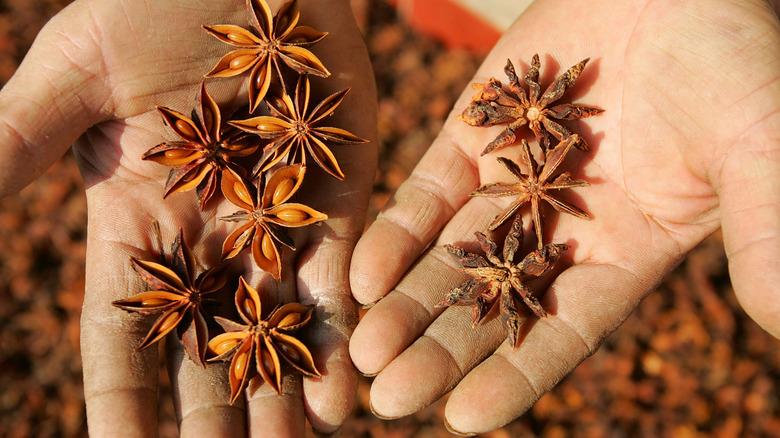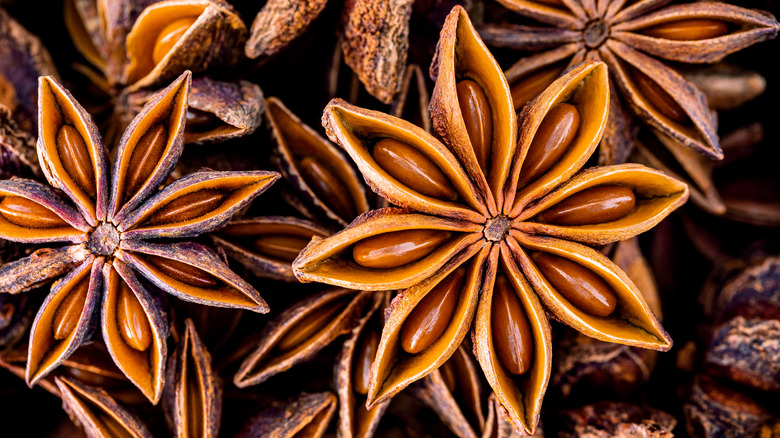Star Anise Could Be The Secret To Sound Sleep
Harvested from the seed pods of the Chinese illicium verum plant, star anise is a popular spice known for its slightly licorice-like flavor. It's often used in teas and the cooking of meats, and is one of the titular five spices in Chinese five-spice powder. In the West, star anise is a popular ingredient in absinthe and sambuca, as well as in baked goods like cakes and pies.
In addition to its status as a go-to ingredient for a variety of dishes, star anise is earning kudos for its medicinal properties as well (via Healthline). Star anise is rich in healthy compounds such as limonene, gallic acid, and quercetin, all of which boost its antioxidant and anti-inflammatory abilities. Having been a staple of Chinese medicine for centuries, the spice is starting to gain traction in Western medicine as of late. One of the main ingredients of the popular flu treatment Tamiflu is star anise, and recent research has also shown that it could be effective against viral infections like herpes simplex. Now star anise is also beginning to emerge as a popular way to ensure a good night's sleep.
Star anise can produce a calming effect
According to a 2011 review published in the Journal of Ethnopharmacology, star anise has been a commonly used Chinese treatment for insomnia for some time. A 2018 review published in the International Journal of Chemical and Biochemical Sciences showed that star anise is a great source of magnesium and antioxidants, both of which could play a role in its effectiveness as a sleep aid. In addition, it may have the ability to regulate certain neurotransmitters and hormones to induce sedative effects and help promote healthy sleep patterns (per Dupi Chai).
Star anise may also have benefits for mood, as shown by a 2017 study in the Journal of Evidence Based Complementary Alternative Medicine. That study showed anise oil to have a calming effect on patients who suffered depression as a result of irritable bowel syndrome. In addition, a 2016 study published in Avicenna Journal of Phytomedicine revealed that anise seed extract can work similarly to the antidepressant fluoxetine, commonly known as Prozac, suggesting that anise may have value in managing depression.
Study the effects before you hit the hay
Like any medication, vitamin, or supplement, there can be some side effects to star anise. According to the American Academy of Allergy, Asthma, & Immunology, researchers in Germany showed that people with a sensitivity to star anise may have an allergic reaction to oseltamivir, also known as Tamiflu. In addition, there have been reports, according to WebMD, of infants and adults affected by seizures and vomiting after drinking tea with star anise.
People taking star anise should know that sometimes it can be confused with Japanese star anise, which is poisonous. According to a 2012 study published in the Journal of Chromatography, consuming star anise that was unintentionally mixed with elements of Japanese star anise could cause hallucinations, nausea, and epilepsy. Given the possibility of toxic side effects when consuming Japanese star anise, you should be cautious when buying star anise products and not attempt to pick your own out in the wild.



